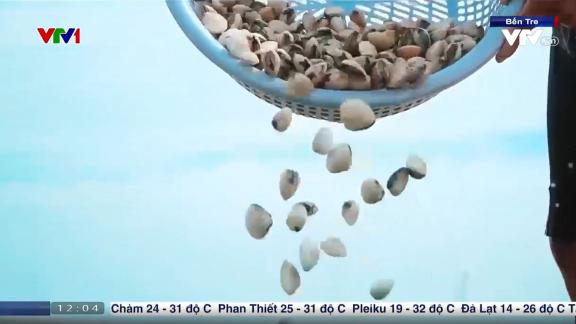
The people of Ben Tre have shifted from relying on nature to actively participating in a clam value chain that meets international sustainability standards. One local farmer, Mr. Tran Van Hoang, used to engage in small-scale farming that yielded only 5 tons of clams per hectare, but now he is able to produce up to 10 tons. Thanks to initiatives such as the sand cleaning machine, the problem of clams mixed with sand has been resolved, resulting in an increase in the value of the clams sold. This success story is just one example of the positive impact of the sustainable clam value chain, which is supported by the SCBV project across Tra Vinh, Ben Tre, and Tien Giang provinces.
By adopting sustainable practices in the clam value chain, farmers in clam-rich areas can increase production value and their income by up to tenfold. This approach also benefits businesses by allowing them to control the quality and quantity of their products and expand their market, thus contributing to the overall increase in the export value of Vietnamese clams. “All my customers in Europe and the US are really happy with this chain model,” Mr. Vo Thanh Hiep, General Director of Hung Truong Phat Seafood Company (Ben Tre) shares.
Since 2018, the project “Inclusive and Sustainable Clam and Bamboo Value Chain Development in Vietnam (SCBV)” has provided technical training in raising and caring for clams according to sustainable standards (MSC/ASC) for cooperatives in Tra Vinh, Ben Tre and Tien Giang. Along with that, the project has promoted linkages between clam farming cooperatives, processing enterprises, and markets, promoting multilateral dialogues and cooperation to develop a sustainable and comprehensive clam industry.
The project is funded by the European Union, implemented by Oxfam in Vietnam, the International Cooperation Center for Sustainable Fisheries and Aquaculture (ICAFIS), the Non-timber Forest Products Research Center (NTFPRC) and the Union Vietnam Chamber of Commerce and Industry (VCCI).